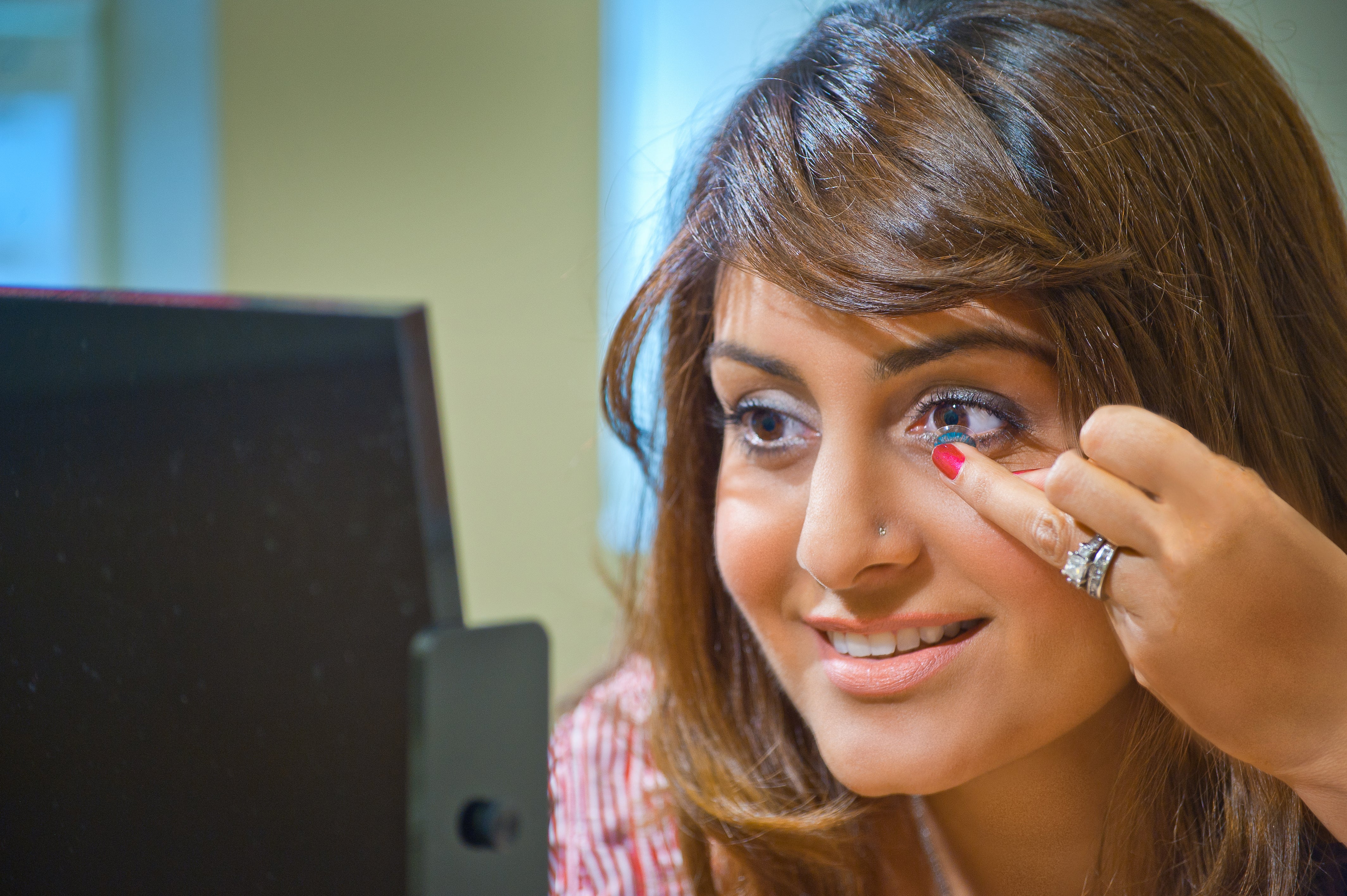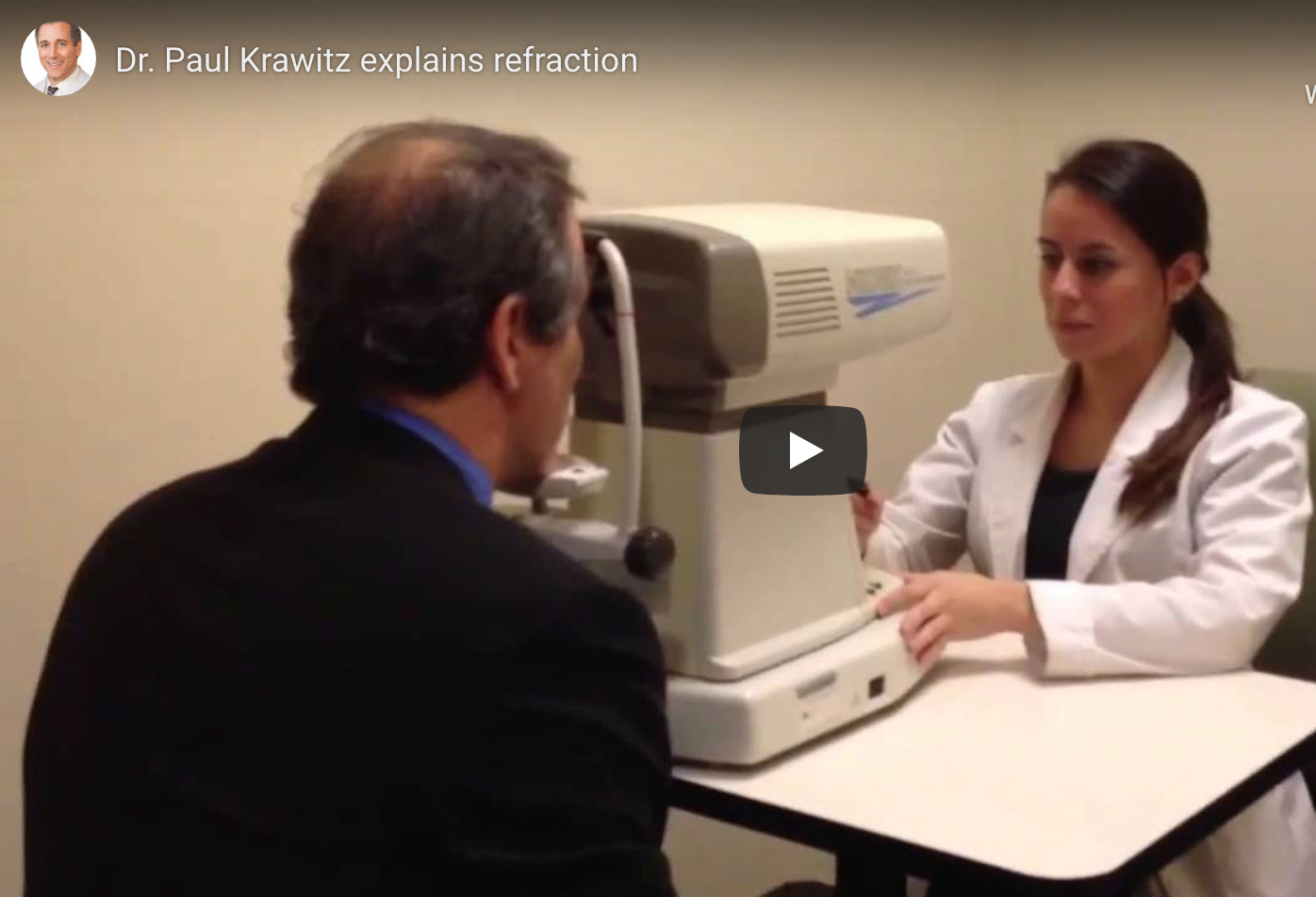The most common reason people fail in contact lenses due to discomfort or poor vision is an improper contact lens fit or prescription.

Unlike eyeglasses, contact lenses are considered a medical device that rests upon the surface of the eye. And because each person’s eyes has a unique shape and prescription, proper contact lens prescribing by an eye doctor involves selecting from the universe of thousands of contact lenses to find the contact lenses that are best for you.
Unfortunately, due to the glut of advertising in beauty magazines and television, many patients are under the mistaken impression that they can walk into a doctor’s office and a few minutes later be handed a contact lens prescription. And one of the painful aspects of a good contact lens fit is that most health insurance companies do not consider contact lenses to be a medical necessity, thus the patient usually has to pay out of his or her pocket.
Do not skimp on a good contact lens fitting by going to a discount store that hands you boxes of lenses without adequate time and attention spent to fitting you and educating you in the correct use of contact lenses.
Why Pro Athletes Wear Contact Lenses
The latest technological advances have made contact lenses a good choice for anyone who wants to wear them. There are many benefits to contact lenses, including:
- Contacts move with your eye, allowing a natural field of view.
- There are no frames to block your vision, and they reduce distortions that you get with eyeglasses.
- They don’t fog up, or get splattered by mud or rain.
- Contact lenses don't get in the way of your activities.
- Many people prefer the way they look in contacts.
- Because there is no visual distortion with contact lenses, they have the ability to provide clearer vision than eyeglasses
It should come as no surprise then, that most professional athletes choose contact lenses rather than eyeglasses.
What type of vision problem do you have?
First, contact lenses must correct your vision problem. If you are near-sighted, far-sighted, or have astigmatism, contacts will allow you to see clearly and comfortably. Second, each lens must properly fit your cornea, so contact lenses come in thousands of sizes, shapes, and powers. A good contact lens specialist will evaluate your eyes to determine which lens is right for you, and will take into account your special needs such as dry eyes, or problems with focusing at near, called presbyopia, which usually starts in your forties.
What if I struggle with reading vision?
People over the age of 40 begin to struggle with reading vision unless they are near-sighted. "Presbyopia" is the name of this vision condition where the crystalline lens of your eye loses its flexibility. That makes it difficult to focus on close objects. It may seem to occur suddenly, but the loss of focusing actually takes place gradually over a period of time. It is a natural part of aging, and occurs in everyone. It is not a disease, and it cannot be prevented. Some signs of presbyopia include the need to hold reading material further away, blurry vision at your normal reading distance, and eyestrain or headaches after doing a lot of close or computer work.
Multifocal contact lenses can help those over 40 to see near and far simultaneously.

To help you compensate for presbyopia, you may be prescribed reading glasses, bifocals, progressive eyeglasses, or contact lenses. If you already wear contact lenses, the options include wearing reading glasses over your lenses, or trying monovision or multifocal contacts. Monovision means wearing a contact lens for near vision in one eye and, if needed, a distance lens in the other eye. Multifocal contacts are also very popular and many people prefer these for both distance and reading.
Many contact lens types are available, including:
- Bifocal (Multifocal) Contact Lenses-provide both good near and distance vision
- Colored Contact Lenses-enhance your natural color or completely change your eye color
- Disposable Contact Lenses-a healthier lens option, especially for young wearers
- Extended Wear Contact Lenses-for safer overnight wear or naps
- Gas Permeable Contact Lenses-for the ultimate in crisp vision
- Monovision-might work if bifocal contact lenses don’t
- Prosthetic Contact Lenses-mask eye injury or disfigurements
- Silicone Hydrogel Contacts-transmit more oxygen to your eyes
- Specialty Lenses-when good vision is not possible with glasses
- Toric Contact Lenses-clearer vision if you have astigmatism














